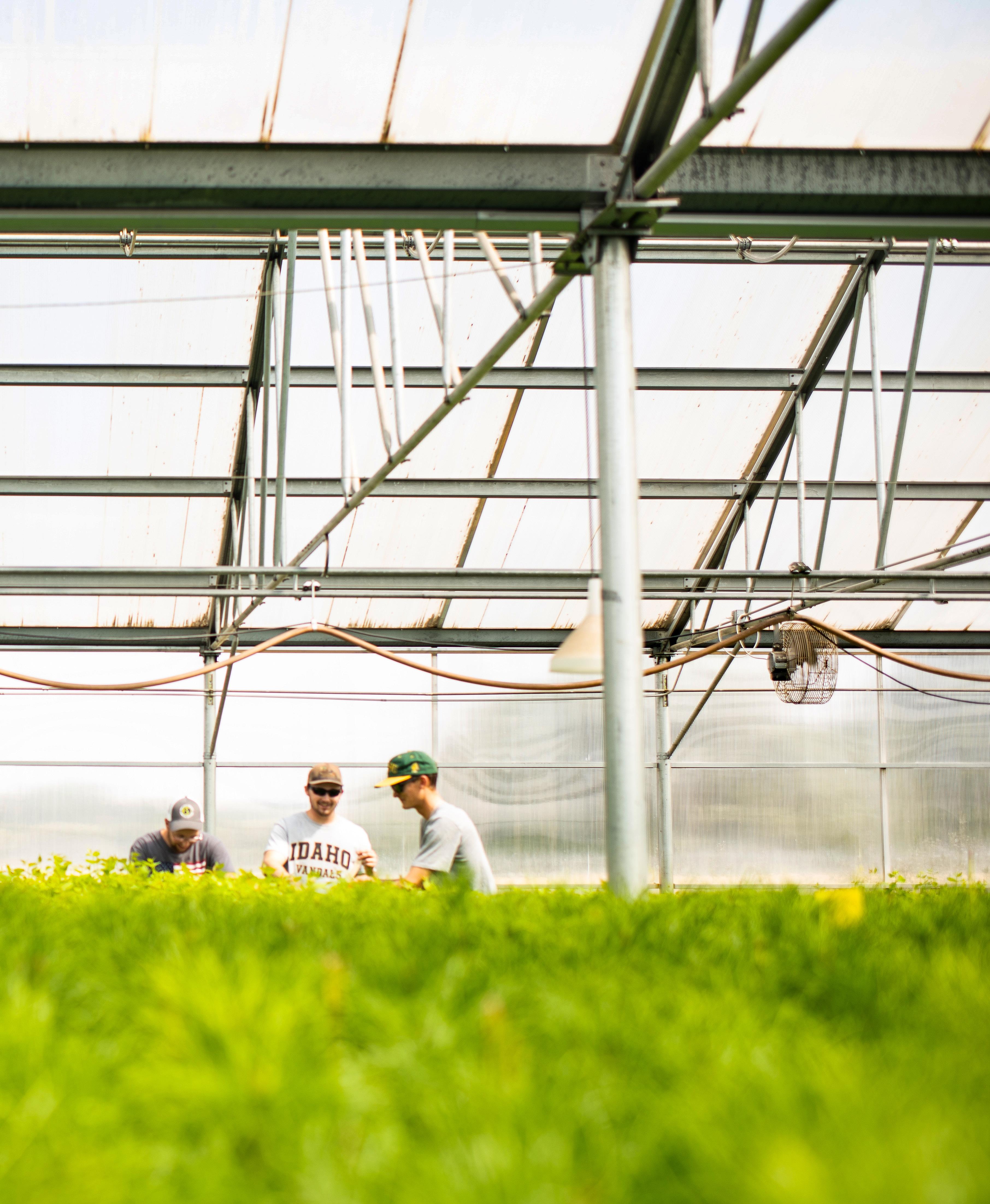
3 minute read
Developing Students Leveraging Partnerships
CNR and stakeholders come together to invest in state-of-the-art infrastructure and equipment
n 2022, the College of Natural Resources is turning a new page as we build upon our strong history of partnerships for research and internships. We are intentionally leveraging those partnerships to create joint faculty and research positions, purchase equipment for our outdoor classrooms and to support access for every capable student to attend the University of Idaho. By expanding the umbrella of what it means to give, we are developing student communities, programs and infrastructure, and bolstering the expertise of faculty as they catalyze future leaders of natural resources. Every CNR partnership prioritizes the student’s growth as an individual and professional ready to have a positive impact on the world. Our relationships prioritize access, training students for specific skills and employing cutting-edge technology to build the workforce for tomorrow. “Whether we’re partnering with local agencies, the governor’s office, donors or industry, joint visions are what drive how and why we invest, and what we seek in return,” said Dean Dennis Becker.
ANDREW NELSON, NURSERY DIRECTOR, ASSOCIATE PROFESSOR AND TOM A. ALBERG AND JUDITH BECK ENDOWED CHAIR OF NATIVE PLANT REGENERATION. PITKIN FOREST NURSERY BREAKING GROUND ON GREENHOUSES
By partnering with the Idaho Legislature, the Nursery is breaking ground on two state-of-the-art greenhouses. The college’s Experimental Forest (UIEF) pre-purchased $250,000 of seedlings — enough to finance five years of seedling production — to incentivize the Idaho Legislature to invest $700,000. Private donors then leveraged an additional $325,000 to upgrade associated equipment. The new greenhouses will provide flexible growing space to meet the seedling production needs of the UIEF, as well as create new capacity for research trials including wildfire restoration. Bringing seedling production back to Idaho will benefit the Idaho Department of Lands, our partners in this agreement. Improved growing environments will bolster our education mission as we train students in the most recent technology and allow for large-scale operational seedling research and production. “We’re one of few nurseries in the nation that can do large scale operational research trials.” said Andrew Nelson, Nursery Director, Associate Professor and Tom A. Alberg and Judith Beck Endowed Chair of Native Plant Regeneration. “The new greenhouses will transfigure technology that is directly applicable to private nurseries. Testing and preparing seedlings for drought acclimation, for example,
DEVELOPING STUDENTS, LEVERAGING PARTNERSHIPS



will benefit the whole industry,” said Nelson.
RINKER ROCK CREEK RANCH PARTNERS WITH USFWS, VOLUNTEERS TO BUILD INFRASTRUCTURE
Among several sources including government and CNR dollars, “a US Fish and Wildlife Service Grant has leveraged funding with outside volunteer programs to get things done. Through this collaboration, we’ve built wildlife fencing and facilitated infrastructure improvements,” said Director of Operations Cameron Paker. Pending approval of federal education budgets, Congressman Simpson has recommended $1.3 million to expand education facilities at the 10,400 acre Rinker Rock Creek Ranch. Simpson’s partnership will improve classrooms and purchase technology to facilitate training for college-bound and university students. These investments will demonstrate practices representative of the western US. “The research done here aids critical species, producers and future managers in balancing competing needs of our rangelands,” said Tracey Johnson, Director of Research at Rinker Rock Creek Ranch.
FULL MECHANIZATION TAKES A TEAM:
Modern Equipment Reforms UIEF Logging Operations
Partnered giving has enabled the purchase of state-of-theart, fully mechanized logging equipment at the University of Idaho Experimental Forest (UIEF.) The UIEF has reinvested student-generated forest management funds to purchase a modern processor and acquiring the first articulated track grapple skidder in the western United States. Stakeholders are now helping the UIEF acquire a feller-buncher and other equipment to complete the full mechanization process. “It’s not just training for our students. They’re now operating equipment that industry hasn’t even used yet. We are also researching comparisons to conventional equipment,” said Robert Keefe, Professor and Director of the UIEF. “This is what the UIEF is truly for – student development and pushing the boundaries of the latest technology,” said Keefe.
By Kelsey Evans, CNR, Fall 2021.










